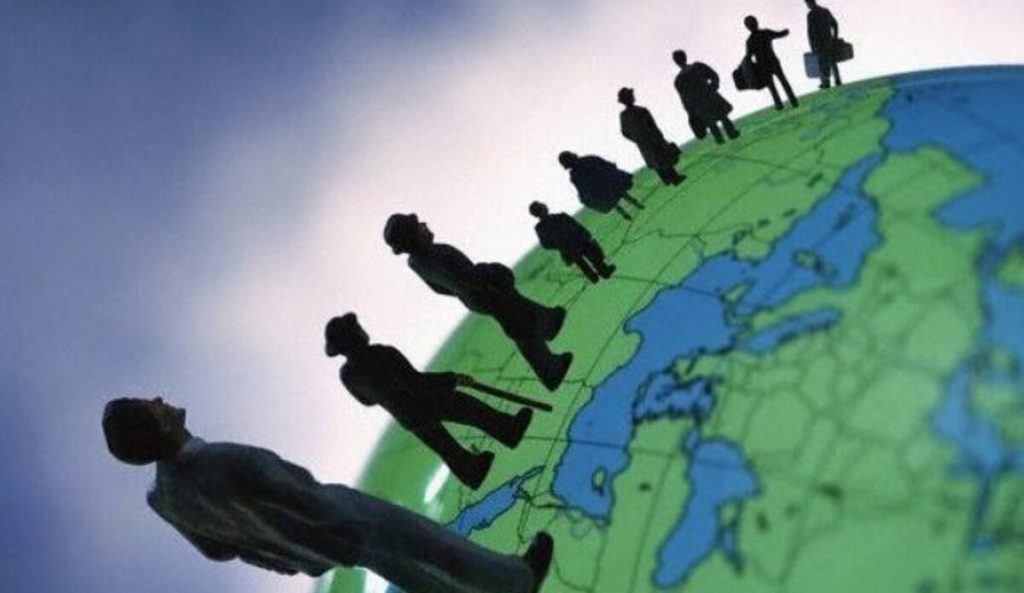Author: Antoine Pécoud
Dossier: Migration
Guest-editor: Elaine Lebon-McGregor
Abstract
There is a widespread consensus that the current governance of migration is unsatisfactory, but no consensus on the ways in which it should be improved. Policy debates polarise around simple binary oppositions that fail to address the complexity of the political dilemmas. There are at least five key ways in which to think about and govern migration, which evolve around different priorities: (1) state sovereignty, (2) security and interstate cooperation to control borders, (3) human rights and migrants’ vulnerability to abuses, (4) economistic management of migration for growth and development, and (5) free movement. Migration governance draws upon all five principles, but future migration governance will need to re-equilibrate the balance between them to achieve lasting and successful political strategies.
One of the reasons why migration is high on the political agenda in so many countries is that virtually everybody is dissatisfied with the ways in which it is governed.
To some, governments are not strict enough and end up admitting too many foreigners, with negative consequences in terms of social cohesion, security, unemployment, cultural identity, etc. To others, the problem is rather that states are too restrictive, leading not only to inhuman situations, with migrants and asylum-seekers facing harsh conditions during their journey and in destination countries, but also to suboptimal socio-economic outcomes, with employers struggling to have access to foreign workforce.
The idea that migration governance should change is therefore widely shared, but there is absolutely no consensus regarding what should be done. Debate often polarises around a number of binary oppositions, for example between ‘openness’ and ‘closure’ to migrants, between ‘control’ and ‘human rights’, or even between ‘us’ and ‘them’. In 2018, the adoption of the Global Compact for Safe, Orderly and Regular Migration was accompanied by yet another binary opposition, between a UN-sponsored supposedly ‘open’ approach and states’ sovereign right to ‘close’ their borders, to the extent that a number of governments refused to endorse the Compact.
Yet, the picture is more complex. Migration governance builds on a number of key variables that go beyond simple binary oppositions. Policy choices therefore raise much more complex political dilemma which must be understood if one wants to push the debate further. This article identifies five key principles according to which migration governance can be organised. These make for different philosophies of migration governance, which each have their own internal logic and reflect a particular way of thinking about, and hence governing, migration. The question is always the same – how should states and the international community address migration? – but there is a multiplicity of answers.
The first answer posits that migration should remain under the realm of state sovereignty. This is a well-established argument; already in 1996 Saskia Sassen wrote that “there is a growing consensus in the community of states to lift border controls for the flow of capital, information, and services and, more broadly, to further globalisation. But when it comes to immigrants and refugees, the nation state claims all its old splendour in asserting its sovereign right to control its borders.”. In this view, inter-state cooperation is a threat to state sovereignty; hence the reluctance towards the Global Compact, for example. There is empirical evidence that shows the prevalence of this approach. In the EU, for instance, cooperation between countries is highly advanced but still fails to properly address issues relating to migrants and refugees. It follows that migration remains a dark hole in the overall governance of globalisation; while a global phenomenon by nature, it is governed at the national level, which, from a functionalist perspective, inevitably yields crises as the ongoing migrant/refugee crisis in the Euro-Mediterranean region illustrates.
The second answer calls for interstate cooperation over migration, but with a narrow security perspective. States would work together across the North/South divide, yet mainly to block people’s mobility and keep unwanted foreigners away. This results in complex and sophisticated security apparatuses to establish the remote control of migration flows, as well as in readmission agreements, development schemes to alleviate emigration pressure, and police cooperation to strengthen sending, and transit states’ capacity to control their borders. Taken together, these measures make for a distinct pattern of ‘forced immobility governance’, as illustrated for example by the 2016 deal between the EU and Turkey. By privileging security and border control objectives, such externalisation of the management of migrants and refugees often leads to problematic outcomes (such as the brutal treatment of migrants in transit countries like Libya).
In light of these abuses, a third answer calls for a rights-based approach to migration. This is an old story: In 1919, the Treaty of Versailles established the International Labor Organization, whose mission already included ‘the protection of the interests of workers when employed in countries other than their own’. The emphasis was placed on the labour rights of migrant workers, which led to international law instruments such as the 1990 UN Convention on Migrant Workers’ Rights – an ambitious human rights convention monitored by the Office of the High-Commissioner for Human Rights. It was hoped that this would make for a strong regime to regulate labour migration worldwide, thereby complementing the refugee regime based on the Geneva Convention and the United Nations High-Commissioner for Refugees (UNHCR). But states proved reluctant; only 56 of them ratified this Convention, and no major Western receiving country did so. In other words, the norms and institutions for a rights-based governance of migration exist, but they remain largely unimplemented because of resistance on the part of powerful states.
This political dead-end has prompted the emergence of a fourth answer, mostly put forward by international organizations. Since the 1990s, the International Organization for Migration (IOM) and other UN bodies have popularised the notion of ‘migration management’. This is predominantly a managerial and utilitarian philosophy, according to which states should cooperate to make the most of migration. All states would indeed share a common interest in successful migration governance; developing states-need remittances for development, when receiving states face labour shortages; a situation that would make for ‘win-win’ cooperation. The above-mentioned Global Compact fits into this approach, which is nevertheless criticised for being insufficiently concerned with rights and vague enough to accommodate harsh border control strategies and exploitative labour migration policies.
The last philosophy of global governance migration has the free movement of people as its main objective. Article 13(2) of the Universal Declaration of Human Rights states that, “Everyone has the right to leave any country, including his own, and to return to his country.” But no right to immigration complements this right to emigration. Moreover, access to mobility has become, in the words of Zygmunt Bauman, “the most powerful and most coveted stratifying factor” – to the advantage of inhabitants of the Global North who, unlike their fellow human beings from the Global South, are less dependent upon the uncertain deliverance of visas and residence permits to venture abroad. The remedy would consist in a democratization of mobility – no longer understood as a privilege granted by sovereign governments, but as a fundamental right. Ethically strong, but politically marginal, this view sometimes converges with market-friendly arguments about the distortive role of borders in the global economy. In a 1984 editorial, the Wall Street Journal wrote that “If Washington still wants to ‘do something’ about immigration, we propose a five-word constitutional amendment: There shall be open borders.”
These five philosophies of migration governance are very different and largely incompatible with each other. Yet, in practice, states borrow from these different answers to craft heterogeneous migration policies. For example, states in the EU have established free movement for their own citizens, while setting up bilateral security-oriented agreements with governments outside the EU, as well as attending UN conferences about migrants’ rights. Migration policies thus amount to patchworks (or assemblages), composed of different elements coming from different philosophies of governance, which are applied differently to different people, based on criteria such as nationality, class, skills, or gender.
It follows that future migration governance will likely continue to rely on a mix of governance philosophies. What needs to change is rather the respective weight of the five pillars identified here. Today, the first one, centred on state sovereignty, is politically strong but largely disconnected from reality, as it fails to recognise interdependencies between countries and maintains the fiction of neatly separated sovereign states. The second one, about forced immobility governance, is equally influential, but excessively one-sided and aligned with states’ desire for border control. Moreover, by outsourcing control, it contributes to destabilise sending and transit countries and cannot therefore serve as the main basis for renewed migration governance.
By contrast, the third, rights-based, philosophy is too weak in current migration governance, as is the fifth one, centred on free movement. Both philosophies have the potential to renew migration governance and are therefore worth pushing for. It is only in that condition that the fourth philosophy would become potentially attractive: ‘Migration management’ seems to suit everybody’s interests but is today too vague to serve as a robust principle for migration governance.
Finding the appropriate balance between these different philosophies is not only a matter of migration policy. It will serve as an indication of whether the community of states can find viable mechanisms to govern one of the most profound and visible aspect of globalization. Ultimately, the choice is between what is often called ‘gated globalism’ a form of globalization that excludes wide segments of the world population, and a genuine form of ‘cosmopolitics’ that takes into account the embeddedness of countries in a global context.
Antoine Pécoud is Professor of Sociology at the University of Sorbonne Paris Nord and research associate at CERI/Sciences Po. His research focuses on the global governance of migration and the role of intergovernmental organisations in migration politics. His last book is The International Organization for Migration. The New ‘UN Migration Agency’ in Critical Perspective (Palgrave, 2020).

